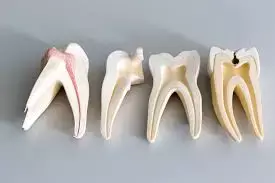- Home
- Medical news & Guidelines
- Anesthesiology
- Cardiology and CTVS
- Critical Care
- Dentistry
- Dermatology
- Diabetes and Endocrinology
- ENT
- Gastroenterology
- Medicine
- Nephrology
- Neurology
- Obstretics-Gynaecology
- Oncology
- Ophthalmology
- Orthopaedics
- Pediatrics-Neonatology
- Psychiatry
- Pulmonology
- Radiology
- Surgery
- Urology
- Laboratory Medicine
- Diet
- Nursing
- Paramedical
- Physiotherapy
- Health news
- Fact Check
- Bone Health Fact Check
- Brain Health Fact Check
- Cancer Related Fact Check
- Child Care Fact Check
- Dental and oral health fact check
- Diabetes and metabolic health fact check
- Diet and Nutrition Fact Check
- Eye and ENT Care Fact Check
- Fitness fact check
- Gut health fact check
- Heart health fact check
- Kidney health fact check
- Medical education fact check
- Men's health fact check
- Respiratory fact check
- Skin and hair care fact check
- Vaccine and Immunization fact check
- Women's health fact check
- AYUSH
- State News
- Andaman and Nicobar Islands
- Andhra Pradesh
- Arunachal Pradesh
- Assam
- Bihar
- Chandigarh
- Chattisgarh
- Dadra and Nagar Haveli
- Daman and Diu
- Delhi
- Goa
- Gujarat
- Haryana
- Himachal Pradesh
- Jammu & Kashmir
- Jharkhand
- Karnataka
- Kerala
- Ladakh
- Lakshadweep
- Madhya Pradesh
- Maharashtra
- Manipur
- Meghalaya
- Mizoram
- Nagaland
- Odisha
- Puducherry
- Punjab
- Rajasthan
- Sikkim
- Tamil Nadu
- Telangana
- Tripura
- Uttar Pradesh
- Uttrakhand
- West Bengal
- Medical Education
- Industry
Lyve1+macrophages crucial for angiogenesis for healing of injured dental pulp tissue

Lyve1+ macrophages play an important role in angiogenesis during wound healing and tissue remodelling of the injured dental pulp tissue, according to a recent study published in the Scientific Reports.
Tissue-resident macrophages populate every tissue, playing important roles in support of tissue development, homeostasis, and remodeling, which makes them attractive therapeutic targets. The functions and phenotypes of tissue-resident macrophages are extremely heterogeneous, depending on the ontogeny, local microenvironment, and inflammation status of the tissue in which they reside.Tissue-resident macrophages expressing lymphatic vessel endothelial hyaluronan receptor-1 (LYVE-1) are found in multiple tissues and organs.
The researchers aimed to evaluate the dynamics and biological functions of LYVE-1+ macrophages in the dental pulp during post-injury tissue remodelling. Immunofluorescence staining of mouse embryos revealed that LYVE-1+ macrophages colonized dental pulp before birth.
In mature rat molar dental pulp, LYVE-1+ macrophages were the main subset of macrophages expressing CD163, an M2 marker, and were distributed throughout the tissue. In response to dental pulp injury induced by cavity preparation, LYVE-1+ macrophages quickly disappeared from the affected area of the pulp and gradually repopulated during the wound healing process. RAW264.
The results were:
7 mouse macrophages cultured with a mixture of macrophage colony-stimulating factor, interleukin-4, and dexamethasone increased LYVE-1 expression, whereas lipopolysaccharide-stimulation decreased LYVE-1 expression. Enforced expression of Lyve1 in RAW264.7 cells resulted in increased mRNA expression of matrix metalloproteinase 2 (Mmp2), Mmp9, and vascular endothelial growth factor A (Vegfa). Lyve1-expressing macrophages promoted the migration and tube formation of human umbilical vein endothelial cells.
Thus, in conclusion, the study suggests that LYVE-1+ tissue-resident M2-like macrophages in dental pulp showed dynamism in response to pulp injury, and possibly play an important role in angiogenesis during wound healing and tissue remodelling.
Reference:
Kinetics of LYVE-1-positive M2-like macrophages in developing and repairing dental pulp in vivo and their pro-angiogenic activity in vitro by Thoai Quoc Kieu, et al. published in the Scientific Reports.
Dr. Shravani Dali has completed her BDS from Pravara institute of medical sciences, loni. Following which she extensively worked in the healthcare sector for 2+ years. She has been actively involved in writing blogs in field of health and wellness. Currently she is pursuing her Masters of public health-health administration from Tata institute of social sciences. She can be contacted at editorial@medicaldialogues.in.
Dr Kamal Kant Kohli-MBBS, DTCD- a chest specialist with more than 30 years of practice and a flair for writing clinical articles, Dr Kamal Kant Kohli joined Medical Dialogues as a Chief Editor of Medical News. Besides writing articles, as an editor, he proofreads and verifies all the medical content published on Medical Dialogues including those coming from journals, studies,medical conferences,guidelines etc. Email: drkohli@medicaldialogues.in. Contact no. 011-43720751


